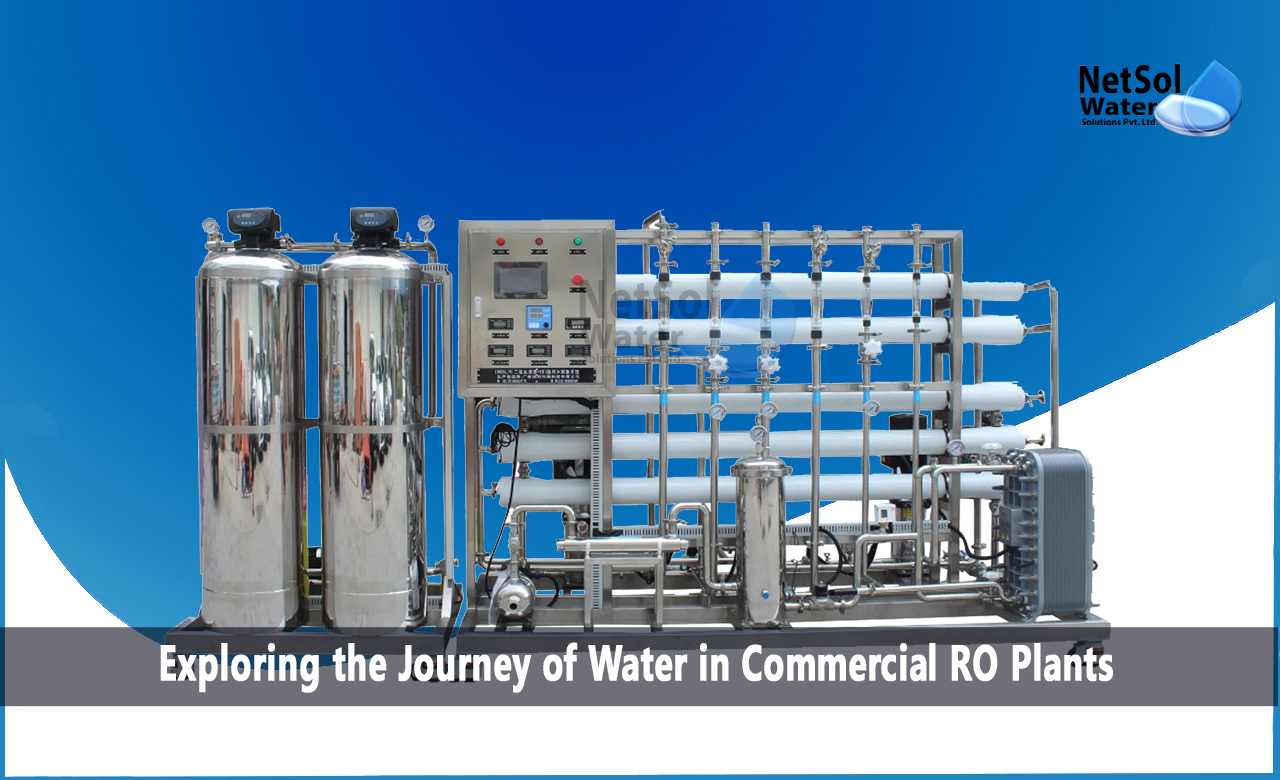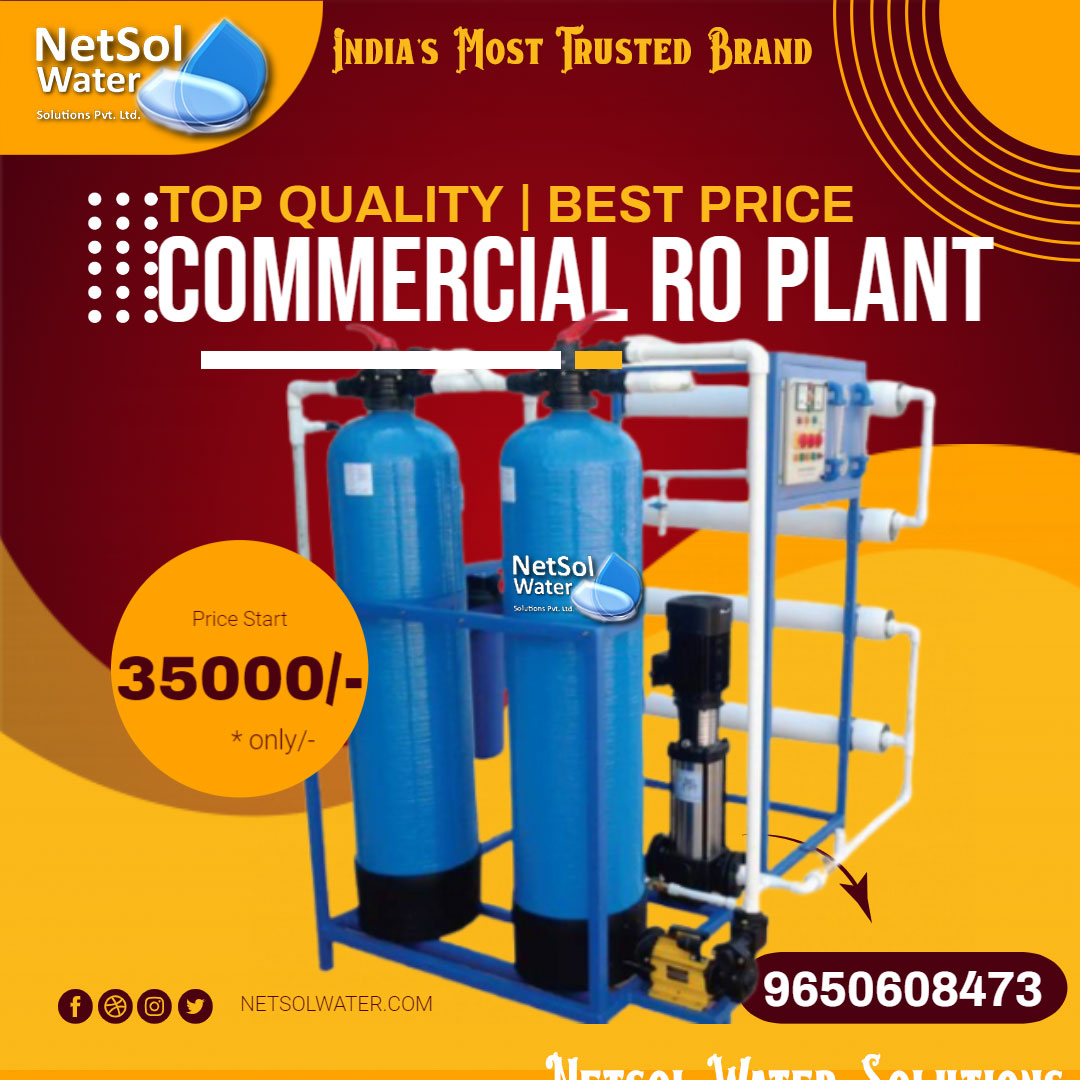Exploring the stages of water treatment in commercial RO plants
Commercial reverse osmosis (RO) plants play a vital role in treating water and ensuring its safety for various applications. Understanding the journey of water through these plants is crucial in appreciating the complex processes involved in purifying water.
Here we will delve into the stages of water treatment in commercial RO plants, highlighting the significance of each step in delivering clean and high-quality water.
Pre-Treatment Stage
1. Intake and Screening
The journey of water in a commercial RO plant begins with the intake process, where water is sourced from a natural water body or a municipal supply. Before entering the treatment system, large debris and suspended solids are removed through screening mechanisms to prevent clogging and damage to equipment.
2. Chemical Dosing
Chemical dosing is employed to optimize the pre-treatment process. Coagulants and flocculants are added to facilitate the aggregation of suspended particles, improving their removal efficiency in subsequent treatment stages.
3. Sedimentation and Filtration
In this stage, water undergoes sedimentation and filtration processes to remove finer suspended solids. Sedimentation tanks allow heavy particles to settle at the bottom, while multi-media filters or cartridge filters further trap remaining particles, enhancing water clarity.
Reverse Osmosis Stage
1. High-Pressure Pumping
After pre-treatment, water enters the heart of the RO system. A high-pressure pump is employed to push water through a semi-permeable membrane, creating the necessary pressure for the reverse osmosis process.
2. Reverse Osmosis Membrane
The RO membrane acts as a selective barrier that allows water molecules to pass through while rejecting dissolved impurities such as salts, minerals, and contaminants. As water permeates the membrane, a portion becomes purified product water, while the remaining concentrated solution, containing rejected impurities, is known as the reject stream.
3. Brine Disposal
The reject stream, or brine, is discharged from the RO system. Proper brine disposal is essential to prevent environmental contamination. Depending on local regulations and site conditions, brine may be safely disposed of through various methods, such as dilution, deep well injection, or evaporation ponds.
Post-Treatment Stage
1. pH Adjustment
Post-treatment involves adjusting the pH level of the purified water. pH adjustment helps ensure water falls within the desired range, which is crucial for specific applications, such as drinking water or industrial processes.
2. Disinfection
To eliminate any remaining bacteria, viruses, or other microorganisms, water undergoes disinfection. Common disinfection methods include the use of chlorine, ozone, or ultraviolet (UV) light. This step is vital in ensuring the delivery of safe and microbiologically treated water.
3. Stabilization and Distribution
The final stage involves stabilizing the treated water and preparing it for distribution. Chemicals such as corrosion inhibitors or stabilizers are added to prevent corrosion and ensure water quality is maintained during storage and transportation.
4. Monitoring and Quality Control
Throughout the entire journey of water in a commercial RO plant, monitoring and quality control measures are implemented. Continuous monitoring of key parameters, such as pressure, flow rates, temperature, and water quality, is crucial to ensure optimal plant performance and adherence to water quality standards.
Conclusion
The journey of water in a commercial RO plant encompasses several stages, each playing a crucial role in purifying and treating water. From pre-treatment to reverse osmosis and post-treatment, a series of processes ensure the removal of impurities, contaminants, and microorganisms, resulting in clean and safe water. Monitoring and quality control measures provide assurance of water quality at every step. Understanding this journey highlights the complexity and significance of commercial RO plants in delivering high-quality water for various applications, ranging from drinking water to industrial processes.
Leading manufacturer of sewage treatment plants in India.
Netsol Water is the leading manufacturer, supplier, and exporter of a quality selection of water treatment, and wastewater treatment products in India, by using advanced sewage treatment methods.
RO plants, water softeners, ETPs, STPs, DM plants, AMC, O&M, Ultra filtration, UV, Ozonation, ZLD plants, Anoxic tanks, and other goods and services are available from us. We also provide services to businesses in sectors including automotive, pharmaceutical, textile, pulp & paper, beverages, refineries, schools, hospitals, office buildings, and hotels, among others.




